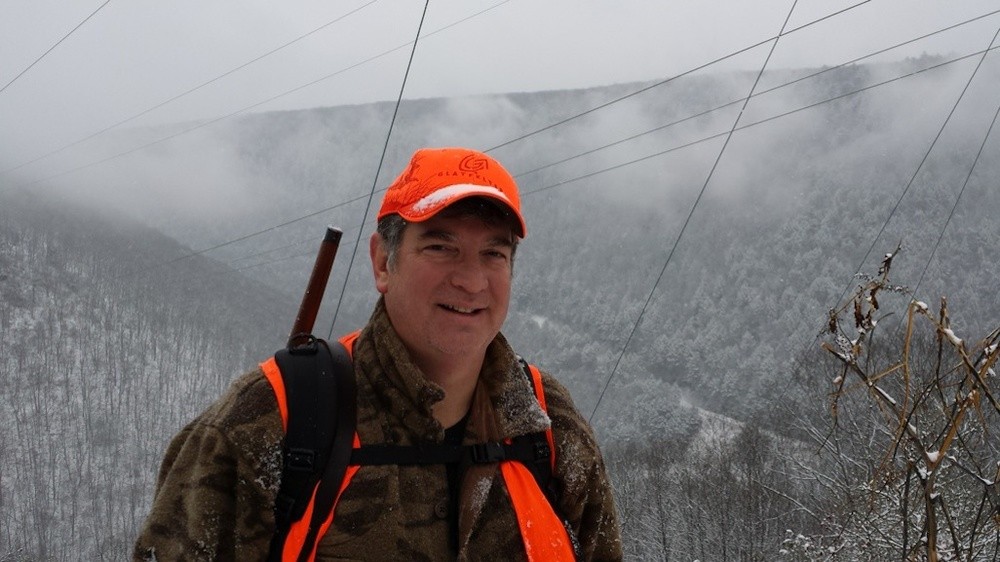Orthodox Jewish hunters?
Why Jews don’t hunt
For most Jews in the United States, hunting laws are not a concern.
Few even realize that the same seemingly archaic statutes that in some places prevent liquor purchases on Sundays, blue laws, also restrict hunting.
That troubles Josh First, a businessman, former congressional candidate, and political activist in Harrisburg, Pa., who is a proud hunter. He says that he is also an Orthodox Jew,thus his observance of Shabbat—and an 1873 Pennsylvania law that outlaws most large-animal hunting—necessitates going the whole weekend without firing a shot.
First signed on as an adviser with Hunters United for Sunday Hunting HUSH, which brought a lawsuit against the state’s Game Commission after years of unsuccessful attempts to repeal the Sunday hunting ban in the state legislature. It’s a campaign issue in the Keystone State’s gubernatorial race, with U.S. Rep. Allyson Schwartz (D-PA)—after five terms in Congress representing areas in and around Northeast Philadelphia—making the law’s repeal part of the platform in her challenge to Republican Gov. Tom Corbett.
Pennsylvania has the largest hunter population in the U.S., according to LehighValleyLive.com.
Although Schwartz is Jewish, First still finds himself in a minority of a minority. He’s the only Jew in HUSH.
“Culturally, Jews are traditionally urban and politically liberal and not exposed to hunting or trapping,” First said, explaining why there are so few Jewish hunters. “And these are practices that are considered, let’s be honest, goyish.”
First regularly goes hunting with other Orthodox Jews from Harrisburg, New York City, and Los Angeles, and said he keeps his hunting cabin strictly kosher.
Although First is confident hunting is acceptable to traditional interpretations of Jewish law, others, such as Rabbi Dovid Bendory, rabbinic director of Jews for the Preservation of Firearms Ownership, disagree.
“In Jewish law, hunting for sport is pretty universally prohibited,” said Bendory. “Hunting because you need the animal in some way is permissible—hunting where the animal is going to be used, if not by you but by someone else. Then it becomes a discussion as to whether or not it’s an appropriate activity to engage in, and the reality is, in the modern world, there are few situations in which the Jew is hunting to use the animal.”
“Using” a hunted animal can present some problems, since an animal that is killed before ritual slaughter is not considered kosher. Another legal issue surrounds the general prohibition of unnecessarily inflicting pain on another living creature..
“Whether or not you can bend the halachic prohibition on hunting by saying, ‘Well, I’m shooting the animal for my non-Jewish friends here,’ is a highly debatable question,” he said.
“There has to be a purpose,” added Rabbi Chaim Schertz, senior rabbi at the Orthodox Kesher Israel Congregation in Harrisburg. “Halachic authorities do not feel that this is a Jewish value; however, from my perspective, the skill involved in being able to understand how animals live and what the woods are like and to be outdoors—to have the ability to survive—that to me is an important skill to attain.” But not to kill them, he added.
Why Jews don’t hunt
By Pauline Dubkin Yearwood, JNS.org
“Jews don’t hunt.”
That’s a comforting statement to one who, like me, opposes hunting, even if it’s not strictly true. I understand that Allyson Schwartz, a Jewish congresswoman running for governor of Pennsylvania, is involved in an effort to end a ban on Sunday hunting, and that there are a few Jews joining the effort. That surprises me.
Conventional wisdom has it that Jews in the United States have never been part of the hunter population because they live primarily in urban areas where a “hunting culture” is lacking. I think it goes far beyond that.
Jews are instructed not to cause pain to any animal in many places in the Torah, from “The righteous person regards the life of his animal” (Proverbs 12:10) to stories of Moses’s and King David’s compassionate treatment of animals, treatment that led to G-d deeming them suitable for leadership.
Judaism teaches that G-d is compassionate toward all creatures and that we are to emulate this compassion. Jews are called rachamanim b’nei rechamanim—compassionate children of compassionate ancestors.
Richard Schwartz, former president of Jewish Vegetarians of North America and one of the country’s leading experts on Judaism’s teachings toward animals, writes in his book “Who Stole My Religion?” that “throughout the ages, the rabbis have strongly disapproved of hunting as a sport. A Jew is permitted to capture animals only for purposes of human food or for what is considered an essential human need. But to destroy an animal for ‘sport’ constitutes wanton destruction and is to be condemned.”
Was there a time when humans needed to hunt animals in order to stay alive? Of course. But that’s no longer true. The vast majority of hunters do what they do for sport, not subsistence. And sport hunting goes against Jewish teachings in many ways, especially considering that many animals endure prolonged, painful deaths when they are injured but not killed by hunters.
Hunting disrupts migration and hibernation patterns and puts ecosystems out of balance. If overpopulation in a location occurs, nature takes care of the problem through natural predation, ensuring that only healthy, strong animals survive. Hunters often kill these strong animals, destroying natural ecosystems. Sterilization and resource management can ease overpopulation.
Of course, animals killed by hunting would not be considered kosher since they are not slaughtered according to kosher laws.
Let’s hope that “Jews don’t hunt” continues to be true, on Sunday or any other day.
Pauline Dubkin Yearwood is Managing Editor of the Chicago Jewish News.

 64.0°,
Mostly Cloudy
64.0°,
Mostly Cloudy 




